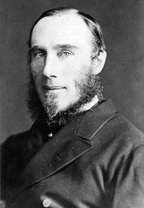Northbrook, Lord

Northbrook, Lord (1826-1904) Governor General and Viceroy of India from May 1872 to April 1876. Born on 22 January 1826, Thomas George Baring Northbrook was the son of the first Baron Northbrook. Educated at Christ Church, Oxford, Northbrook was the private secretary successively to Sir George Grey at the Home Office, Sir C. Wood (Lord Halifax) at the India Office and Admiralty. He was an MP for Falmouth and Penryn (1857-66), Junior Lord of the Admiralty (1857-58), Under Secretary for India (1859-64).
Lord Northbrook had the closest family link with India from the beginning of the colonial rule in Bengal. His grandfather, Baring, was an influential director of the east india company and many of his family members came to India as civilians and merchants ever since 1780s. A liberal of the school of Gladstone, Lord Northbrook believed in less government interference and was in favour of keeping the colonial state undisturbed by unwarranted changes. He believed in free trade and abolished all export duties except those on oil, rice, indigo and lac. There was pressure on him from the Conservative Government of Lord Disraeli to abolish import duties altogether as he did for export duties.
Being pressed hard he had to reduce import duties from 7.5% to 5% that had affected indigenous industries. Lord Northbrook had also differences with the Home Government on the issue of Afghan policy that was directed to check Russian influence in the area. He was against the 'forward policy' of the Disraeli government.
Northbrook's administration was marked by agrarian unrest in Bengal. He very skillfully managed the Bengal famine of 1874 and earned admiration of all by personally visiting the famine affected areas and organizing relief operations. In early 1876, Northbrook received a directive from the India Office to abolish import duties altogether and resigned arguing that such a decision would bring incalculable harm to the Indian economy. [Sirajul Islam]
